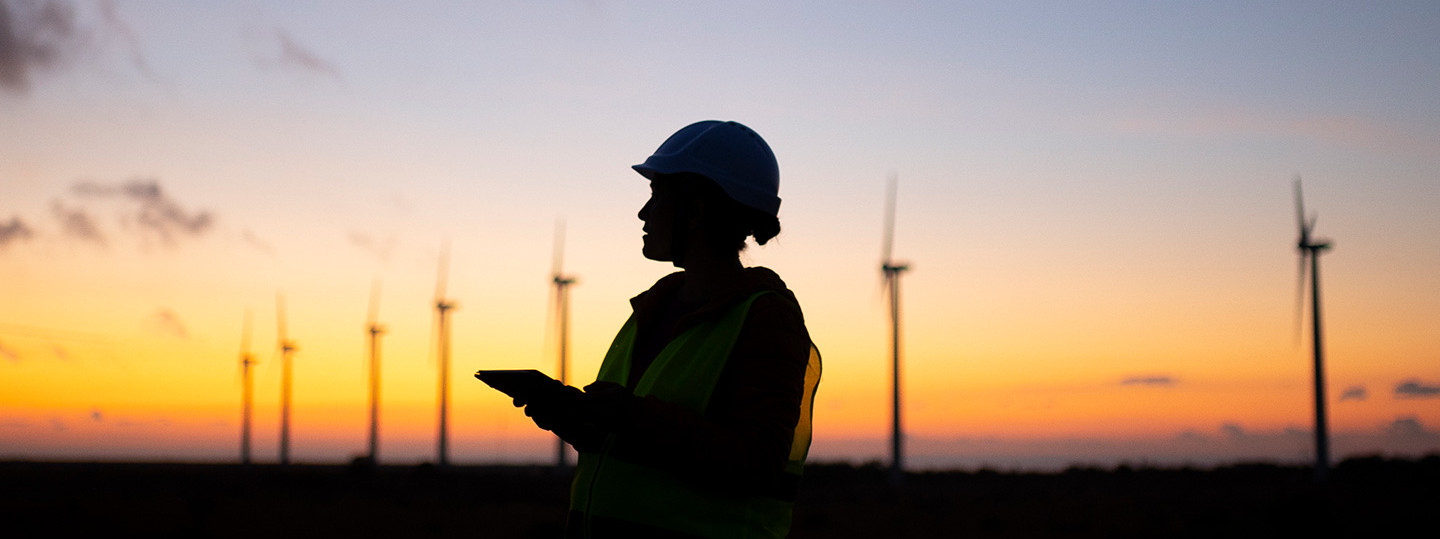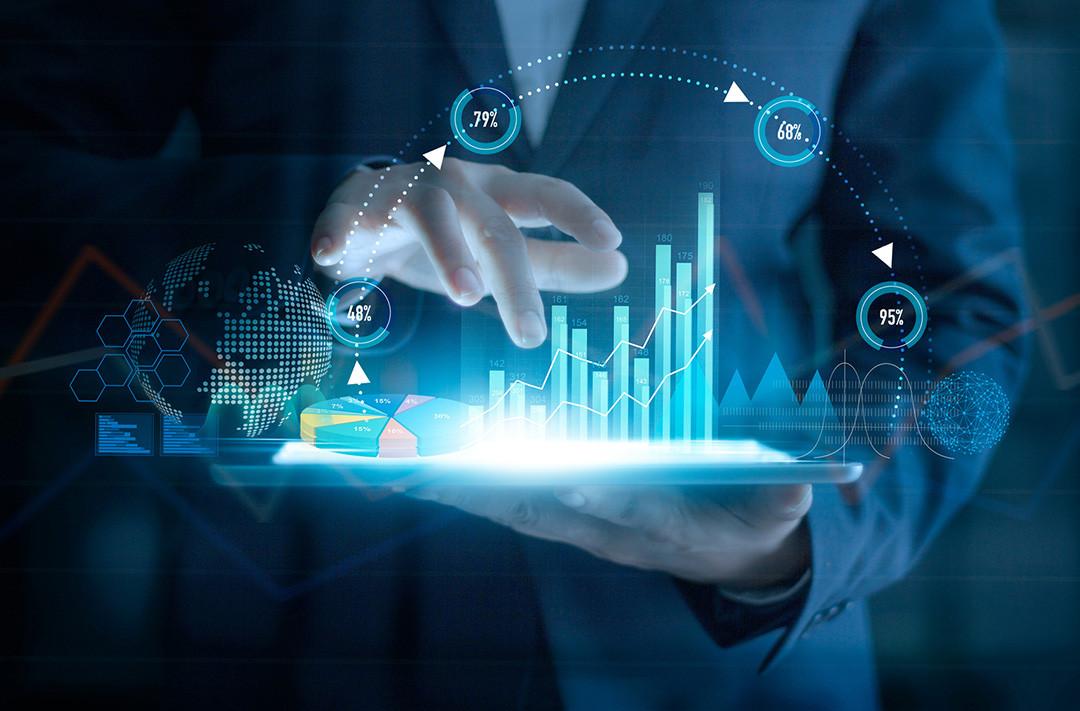
Net Zero Factory: Customized decarbonization paths to make the need a competitive advantage
The path to a climate-neutral society is associated with major challenges. For the industrial sector alone, the BDI study "Climate pathways 2.0", which has just been published, estimates the investments needed to achieve climate neutrality to be around EUR 860 billion by 2030. The positive news: More and more companies are actively taking responsibility for climate protection and are pursuing ambitious CO2 targets with ambitious sustainability programs. This leads to the exciting question of how companies can fulfill and implement their climate protection promises – especially through specific projects and measures at the individual production or industrial locations.
Very often, the starting point is merely general targets and timelines for sustainability or decarbonization, which need to be brought to life in a meaningful way within the context of the respective local circumstances and opportunities. However, ambitious goals cannot be achieved with individual measures or individual technology analysis. A specialized, external service provider can provide support at this point and evaluate the most efficient procedure. In this context, comprehensive, future-proof advice, planning and analysis are essential for a climate-friendly and, above all, economically sustainable decarbonization process that

- evaluates and analyzes the individual object in detail with its peculiarities and potential as well as the technical conditions,
- goes far beyond individual measures which are not linked and coordinated, irrespective of the manufacturer; and
- keeps a holistic view of the future viability of the respective locations.
With the "Net Zero Factory" approach, ENGIE Impact pursues a holistic consulting concept and relies on an innovative simulation tool developed in-house for the creation of customized road maps for decarbonization with "Prosumer". Prosumer uses a digital twin of the respective location or object for analysis – because experience shows that decarbonization only works with the most modern Digitalization methods.
Decarbonization of production and commercial sites requires a holistic consulting and planning concept
The path to a CO2-neutral operation is linked to countless variables, which have a decisive influence on the possibilities for planning and implementing on-site measures. The focus here is first of all on setting a binding CO2 target in terms of time, against which an individual roadmap is aligned. For example, should high savings targets be achieved in a short time? Or is there a longer period of time available in which future technologies can be taken more into account?
In addition, there are a number of other factors: What investment and financing options exist, over what time frame and with what boundary conditions? What about energy efficiency on the ground? Which potentials can be tapped, which in turn have an influence on the dimensioning of future generation plants? How much energy will be needed for which processes, now and in the future? What is the potential in the generation and use of green electricity and green heat? Are there, for example, more recent generation plants, such as CHPs, which are worth switching to biogas or green hydrogen? How and to what extent can old, CO2-intensive generation plants be usefully replaced by a combination of sustainable technologies? To what extent is the use of carbon capture technologies an option? And: in what order and in what context should which combination of which technologies be used to implement an optimized system overall?
In principle, it can be stated: Even identical locations or identical production sites have different requirements, which must be taken into account in the consultation and for the creation of an individual roadmap. In addition to climatic conditions, these include national and regional support measures that favor the implementation of certain measures, or the consideration of various scenarios for the price development of CO2 and various energy sources.
"NetZero Factory" – in five steps to an optimized decarbonization roadmap
With the holistic "Net Zero Factory" consulting approach, ENGIE Impact pursues the goal of making the transition not only environmentally sustainable but also cost-efficient. Based on experience gained in supporting global CO2 savings projects, we have established a five-step model. This gives the clients a clear vision of how their sites must develop in the future in order to achieve the CO2 targets they are aiming for while producing and using media as economically as possible:
- joint discussion and definition of objectives and success criteria
- detailed technical analysis of existing assets with joint assessment of the site potential for emissions reduction
- Simulation of various scenarios and options for the determination of suitable paths for decarbonization and joint development of a technical optimum
- Optionally, a joint review of financing models for the planned investments and the reduction of financial risks, for example through direct financing by ENGIE or cooperation with contracting partners
- Creation of a workable roadmap including definition, prioritization and planning of all necessary project activities to implement the preferred decarbonization path
Cost-effective transition to a future-proof system with a clear timetable
A central element of the "Net Zero Factory" approach is the conception of a future-proof plant by identifying individually tailored technology and plant decisions along the entire process. Good to know: The roadmap, which defines clear steps and milestones for the transition, also takes into account next-generation technologies and innovations and their predicted cost development, as well as the development plans for the plant itself.
The expected price developments of both the energy markets and the technologies are in turn relevant in order to determine at any time in the transition phase the optimal mix of technologies and plants, which ensures a high level of cost efficiency, both in terms of investment costs and operating expenditure. The "Net Zero Factory" approach thus creates transparency regarding the current and future technology potential and provides an outlook for the associated costs. At the same time, it shows companies attractive ways in which operational and financial risks can be transferred to external service providers via alternative contract models.
Insight: Simulation with "Prosumer" for customized paths to decarbonization
As a core element of the "Net Zero Factory" approach, ENGIE Impact uses a specially developed, flexible simulation tool for optimizing decarbonization paths and their investment requirements with the analysis platform "Prosumer". The basis of the optimization is to record the actual state of the object as accurately as possible in order to generate a digital twin. Therefore, in addition to the data of the actual assets of the media supply at the location, the tool records in detail the existing load profiles based on high-frequency data streams.
From PV systems and wood pellet boilers to high temperature heat pumps and battery solutions to biomass and green hydrogen: For the simulation of the roadmaps, the "Prosumer" tool has an extensive database of systems and technologies that can be considered for media supply in the future, according to the requirements. When along the roadmap a technology change ideally takes place, in which form and with which generation capacities ideally takes place, depends very strongly on possible or already planned energy efficiency measures, which are taken into account in the tool accordingly and which tie in with the detailed analysis of the site carried out at the beginning. The same also applies to possible subsidy programs which can be incorporated into the simulation tool depending on the location and conditions of the location.
With "Prosumer" optimally prepared for different scenarios
The high flexibility of "Prosumer" and the competence of ENGIE Impact become apparent when other variables such as future price expectations come into play. Depending on the forecast, such as the future development of electricity and gas or CO2 prices, the simulation tool plays through various scenarios. The result is a customized roadmap for optimal system configuration with a focus on minimizing total cost of ownership (TCO) over the lifetime of the assets.
If, for example, the CO2 price rises more than expected in a scenario, "Prosumer" recommends, for example, an early switch to alternative technologies or a fuel exchange if this is more economical. In addition, the simulation also enables forward-looking site planning in other areas. If, for example, the construction of a geothermal plant is planned in a few years, this can be taken into account, for example, when constructing additional warehouses before construction, by drilling the necessary holes in advance and planning technical connections as a precaution.
Thus, the simulation tool not only allows a precise outlook on future site development. In addition to the various scenarios, it provides a valid and detailed basis for the specific planning of the measures for CO2 reduction and thus enables a seamless transition from the strategy phase to the implementation phase.
Our Expert












